If you are looking for a natural hack, explore if lemon juice is good for your snake plants, and also learn how to use it.

Who would have thought that the secret to an incredible snake plant is actually lying in your kitchen? Curious? Well, we are talking about using lemon juice for your snake plant! If you have never heard of this hack before, we are here to tell you all about it—whether lemon juice is good for your snake plant, and also how to use it.
Is Lemon Juice Good for Snake Plants?
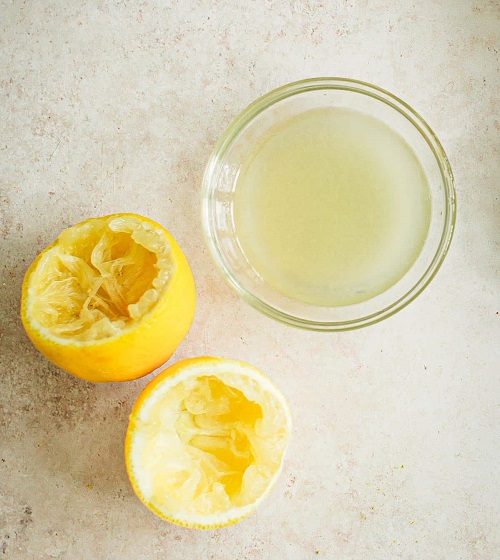
You will find a lot of different opinions on the internet about the efficacy of lemon juice for snake plants. While some gardeners swear by its advantages, others say it might kill your plant! But we are here with the truth.
Snake plants (Sansevieria) like slightly acidic to neutral soil, with a pH range of 5.5 to 7.0. But sometimes, the soil becomes too alkaline. This can happen due to hard water, poor soil quality, or salt buildup. When that happens, the plant can’t absorb key nutrients like nitrogen and iron properly, and it starts to look dull or weak.
In such cases, lemon juice can help by lowering the soil pH slightly. A small amount can bring it back to that sweet spot where your plant thrives. Plus, lemon juice has natural antifungal and antibacterial properties, which can tackle minor infections on the leaves or soil.
How to Use Lemon Juice for Snake Plants?
1. Watering With Lemon Juice
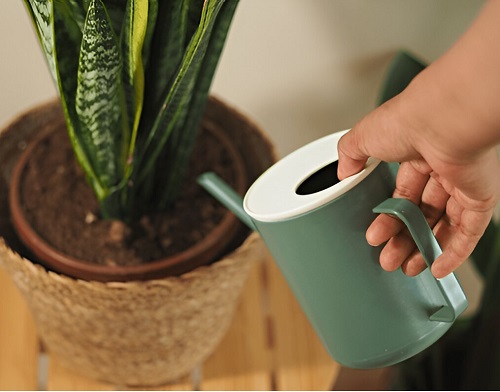
No, don’t pour lemon juice straight into the pot—your plant won’t thank you for that. Instead, mix 1 tablespoon of fresh lemon juice into 1 gallon (around 4 liters) of water. Use this to water your snake plant every 4 to 6 weeks.
This trick helps brighten up the foliage and encourages stronger roots and more pups. If your tap water is very hard, go for rainwater or filtered water instead, as hard water can reduce the effect over time.
Always water when the top 2 inches of soil feel dry. Overwatering—especially with acidic water—can do more harm than good, so don’t go overboard.
2. Lemon Water Wipe
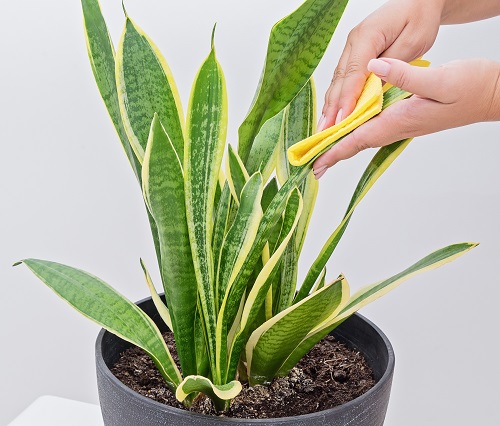
If your snake plant’s leaves look dusty or spotted with white marks from hard water, it’s time for a leaf spa day. Dip a microfiber cloth into the lemon water mix (the same one as above) and gently wipe down each leaf.
This clears off grime and those stubborn spots, making your plant look fresh and shiny. But first, test it on a small patch of a leaf to check for any reaction. If all looks well after 24 hours, go ahead with the rest.
Always dry the leaves after wiping. If your plant sits near a window, clean the leaves in the evening to avoid sunburn caused by citrus residue under bright sunlight.
3. Lemon Juice Pest Mist
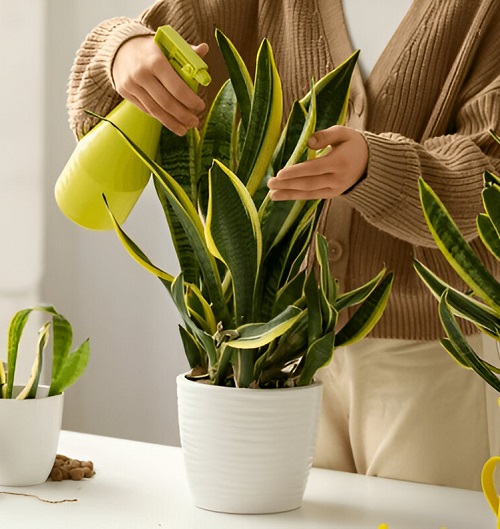
Having bug trouble on your usually resilient snake plant? A gentle lemon water mist might be your plant’s new best friend! Just mix 1 tablespoon of lemon juice with 1 liter of water, pour it into a spray bottle, and lightly mist both the top and bottom of the leaves.
This hack can help deter common pests like aphids or thrips, which can’t stand anything acidic. Just don’t overdo it—mist lightly every couple of weeks, and never spray in direct sun or during the hottest part of the day to avoid leaf burn.
You can also add a drop of mild liquid soap to this mix (optional) to make it slightly more effective against soft-bodied pests—just test it first on one leaf before doing a full mist.
Things to Remember About This Hack
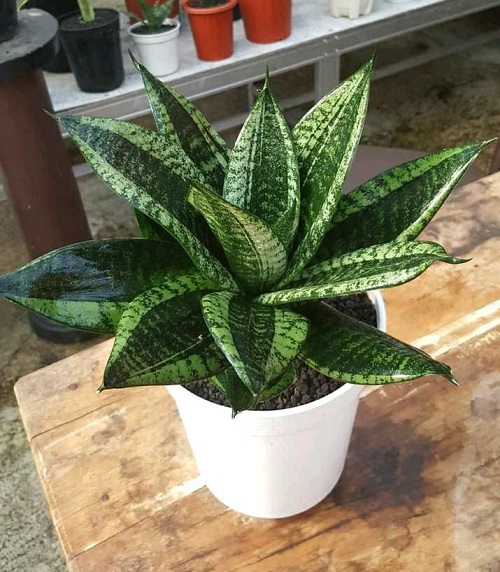
- Never use undiluted lemon juice on any plant. It is acidic enough to harm most plants, especially their roots and leaves.
- Do a soil test before applying these methods, and if the pH is below 5.5, meaning the soil is already acidic, adding lemon juice will actually harm, not help.
- Having a well-draining soil mix and a pot with drainage holes is a must. If your plant sits in soggy soil, lemon juice can make root rot worse. Add perlite or pumice to improve drainage.
- After each use, watch for signs of stress like yellow or faded leaves. If you see them, dilute your mix further next time.
- Remember, this is a temporary fix, not a long-term routine. If your soil is too alkaline, plan to repot your plant in a better soil mix. Lemon juice can’t replace healthy soil in the long run.
So, this was all about using lemon juice for snake plants. Try out the hacks for any of the problems mentioned above and let us know how your snake plants did in the comments below!







